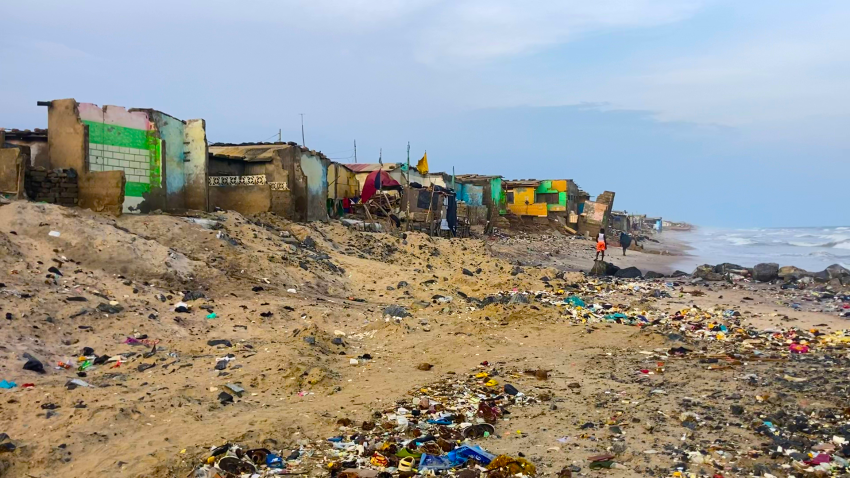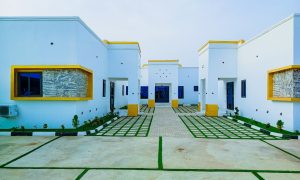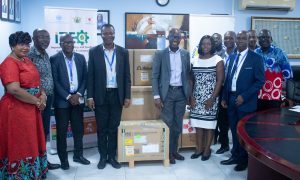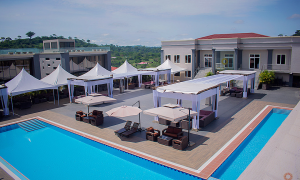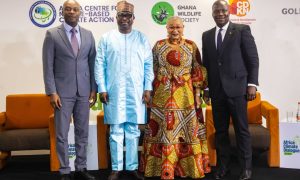By Raymond rex Awiagah
The Story
Shiabu, is a coastal community located near Chorkor in the Greater Accra Region in Ghana. In this part of the countryside, is a silent disaster unfolding. What used to be vibrant homes, full of laughter and life, have now been wreck and swept away by the unforgiving sea.
Assessing the climate change Impact
Families are left displaced, and their stories are ones of heartbreak and a desperate call for action.
I came here with a simple mission: to find out how climate change is affecting their business and way of life. But what I found was deeper than just economics. It was about survival.
Point of view of Residents
31 years old Isaac Nii Ayitey put it this way: “We grew up here and lived here all our lives. But now it comes closer and closer, destroying our homes.
“Every year, the waves come closer. I can tell you that homes have been destroyed. Where the sea defence is were all peoples home including hotels but they are all gone. Even despite the sea defence, you can still see what is happening to our homes currently. It’s not been easy, peoples investments have gone just like that. We don’t know where else to go”
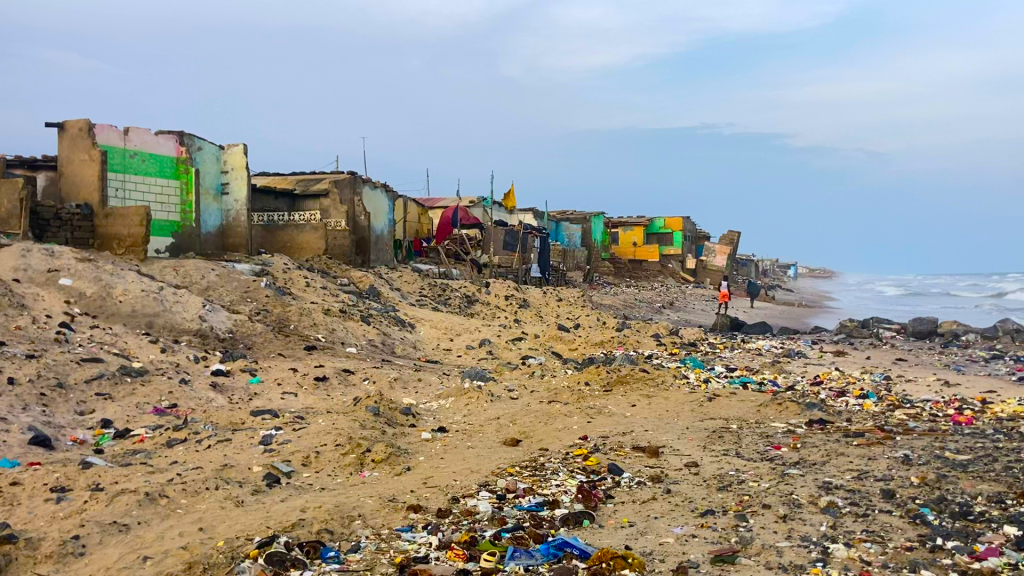
Per Isaac’s narratives, it is clear that the impact of climate change here is more than rising sea levels. It’s the loss of livelihoods and a way of life.
Climate Change Impact on Local Fishermen
Local fishermen told me that the catch from the sea has drastically reduced. “These days when we go fishing, we spend so many hours at the sea but what we come home with its not encouraging as compared to years back.
Things were not like this before at all but we are faced with it. Previously, June-July used to be okay now it’s even not guarantee” said Nii Quaye a 43 year fisherman.
Climate Change: The Global Context
According to the Intergovernmental Panel on Climate Change (IPCC), sea levels have risen by over 20 cm since 1900 — and the pace is accelerating. If the world fails to curb emissions, sea levels could rise by nearly 1 meter by 2100, devastating low-lying coastal areas in countries like Ghana.
In West Africa alone, the World Bank reports that over 60% of the region’s coast is vulnerable to erosion and flooding. Ghana’s coastline — particularly in places like Shiabu, Ada, Keta, and Elmina — is among the hardest hit.
Climate Change Impact on West African Countries
The United Nations Environment Programme (UNEP) has warned that Africa, which contributes less than 4% to global greenhouse gas emissions, is facing some of the most severe climate impacts. Despite this, access to adaptation funding and global support remains limited.
The UN Framework Convention on Climate Change (UNFCCC) continues to call on wealthier nations to fulfill their $100 billion annual climate finance commitment to developing countries — a promise that remains unmet.
A Call for Urgent Action
Shiabu’s struggle reflects a growing global crisis — where communities are being forced to choose between staying in sinking homes or starting over with nothing. The impacts are not only physical but emotional, cultural, and generational. Centuries-old fishing traditions are at risk of being lost forever.
What Can Be Done
The international community must take action. That includes:
• Fulfilling climate finance pledges to support vulnerable countries in adaptation efforts.
• Investing in sea defense systems, climate-resilient infrastructure, and early warning systems.
• Amplifying local voices in global climate negotiations, because no one understands the threat more than those who live it daily.
Conclusion
We must not wait until every home is gone and every shore washed away. The time to act is now.

